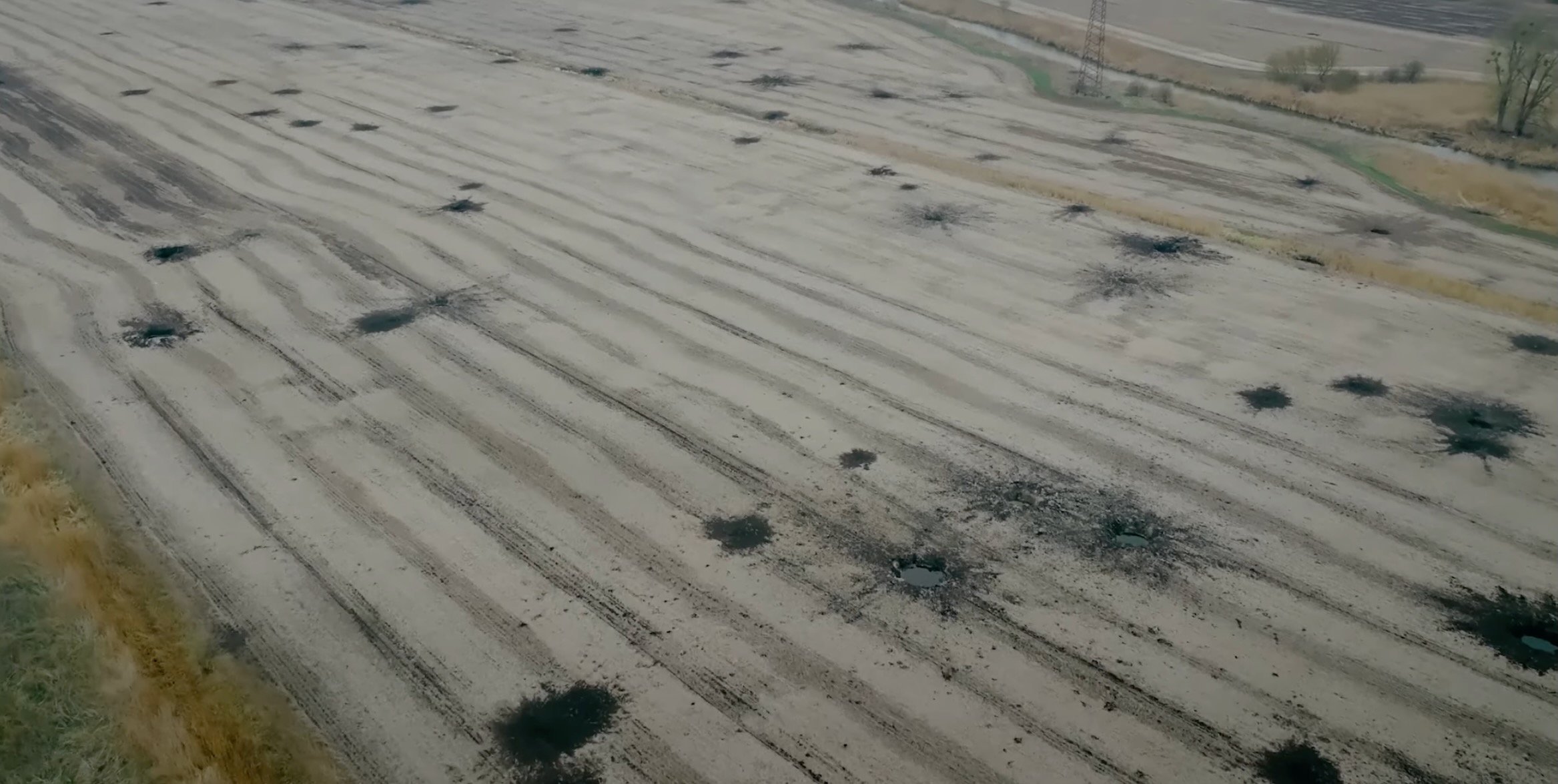Over the last 18 months, Tech.eu has covered many stories about the Ukrainian tech community. I've been privileged to visit different parts of the country previously.
But here's a story with a bit of a difference but no less importance.
Life in wartime goes on, but can you imagine running a farm when your land is bombed, machinery is damaged, and you lack access to seeds and fuel?
Farmerhood is a charity project developed by agriculture leaders to help Ukrainian farmers in war-torn areas maintain their business operations, restore farms and support the agricultural workforce.
I spoke to the project lead and EarthDaily Agro VP of Marketing Andrew Mullin and Business Development Lead Inessa Kravchenko to learn more.
The initiative, supported by some of the world's leaders in agriculture, has established a global farmer-to-farmer donation model and a digital platform for easy and reliable support.
Thousands of Ukrainian farmers have an opportunity to register via the Farmerhood platform and, once validated, receive help from farmers around the world.
EarthDaily Agro is an agriculture division of EarthDaily Analytics, providing satellite-based analytics to agriculture companies in Europe, US and Brazil. The company originated in Toulouse, France, with most of its staff still in France, and today also has offices in Lausanne, Switzerland and Minnesota, US.
When Russia invaded Ukraine, the company decided to divest itself from Russia. But it had a long list of customers and our deep history in Ukraine, and we decided to help.
Mullin explained:
Agriculture is one of Ukraine's major industries as the bread basket to the world, growing crops such as wheat, corn, barley, and canola.
The amount of wheat being grown is halved. Even if you could get all of the grain out of Ukraine, they're only producing at 50% of the level prewar. And they're one of the largest grain producers in the world."
Besides the obvious humanitarian challenges, Russia's invasion has a profound implication to food security, prices, and overall food distribution.
"We're trying to help the little guys, those that operate at 500 hectares, or acres, often family businesses with only a couple of people."
Funds raised through the program provide support to Ukrainian farmers across five key focus areas:
- Agricultural inputs such as seeds and crop protection
- Fuel to enable field operations (fuel is currently in short supply and very expensive in Ukraine)
- Restoration to help repair facilities and machinery
- Financial support to cover additional needs such as rent, salaries and taxes.
The initiative also aims to assist with precision farming as earth observation data can help inform farmers on optimising limited resources. Real-time spatial analytics help prescribe the right seed and fertiliser in the correct quantity to optimise growth.
As Mullins explains,
"If you're a corn grower, it's costly right now to produce corn in Ukraine because of high fuel prices to dry the corn. So a farmer might not have the resources to keep planting corn. They may get forced into growing something new with little experience.
Using historical data from earth observation providers can provide critical insights into the appropriate growing conditions, including the soil and temperature specific to their location."
The initiative also partners with local supports and businesses such as Agrilab, Baker Tilly Ukraine, AgroNews, Deep State, the All-Ukrainian Congress of Farmers, UAC Agro Connection, OKKO, Epicentrk and Trend & Hedge Club.
Inessa Kravchenko comes from the Northeast of Ukraine, North East. She recalls:
"One year and a half ago, we had Russians on our land. The destruction of the Kakhovka dam by Russian forces meant flooding and water scarcity challenges for farmers in different regions.Farmers needed to access their fields for soil sampling, but it was too dangerous due to landmines."
In response, satellite images helped understand the land underwater and the scope of crop shortages. Water scarcity meant that some farmers couldn't irrigate their crops.

Further, Russian armies were not only destroying physical infrastructure and crops but also killing cows and pigs. She shared:
"The situation so hurt farmers, but everyone wanted to keep going, and when they learned of Farmerhood, they felt less alone."
Mullins sums it up well, "Farming is already a challenging job whenever you live, but now people are working on farms in the worst situation imaginable.
We know how hard it is to be successful in farming. And so most of the people jumping on board are doing it to help their brothers and sisters in farming."



Would you like to write the first comment?
Login to post comments